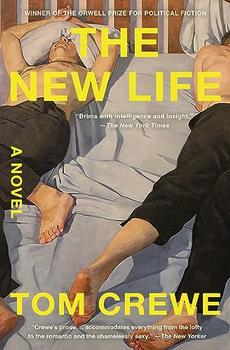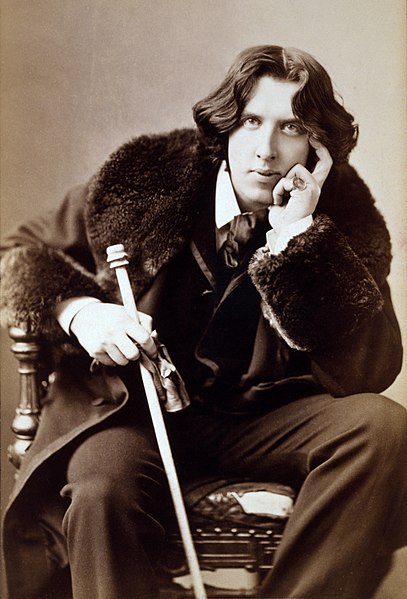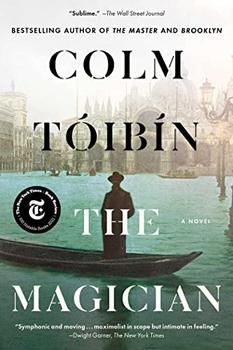Summary | Excerpt | Reading Guide | Reviews | Beyond the book | Read-Alikes | Genres & Themes | Author Bio

A Novel
by Tom CreweA brilliant and captivating debut, in the tradition of Alan Hollinghurst and Colm Tóibín, about two marriages, two forbidden love affairs, and the passionate search for social and sexual freedom in late 19th-century London.
In this powerful, visceral novel about love, sex, and the struggle for a better world, two men collaborate on a book in defense of homosexuality, then a crime—risking their old lives in the process.
In the summer of 1894, John Addington and Henry Ellis begin writing a book arguing that what they call "inversion," or homosexuality, is a natural, harmless variation of human sexuality. Though they have never met, John and Henry both live in London with their wives, Catherine and Edith, and in each marriage there is a third party: John has a lover, a working class man named Frank, and Edith spends almost as much time with her friend Angelica as she does with Henry. John and Catherine have three grown daughters and a long, settled marriage, over the course of which Catherine has tried to accept her husband's sexuality and her own role in life; Henry and Edith's marriage is intended to be a revolution in itself, an intellectual partnership that dismantles the traditional understanding of what matrimony means.
Shortly before the book is to be published, Oscar Wilde is arrested. John and Henry must decide whether to go on, risking social ostracism and imprisonment, or to give up the project for their own safety and the safety of the people they love. Is this the right moment to advance their cause? Is publishing bravery or foolishness? And what price is too high to pay for a new way of living?
A richly detailed, insightful, and dramatic debut novel, The New Life is an unforgettable portrait of two men, a city, and a generation discovering the nature and limits of personal freedom as the 20th century comes into view.
The protagonists of The New Life are based on two real-life figures — John Addington Symond and Havelock Ellis — who co-wrote a historical-scientific text called Sexual Inversion, just like in the novel. However, as Crewe mentions in his afterword, he fictionalized these figures through his characterization of their interactions. In reality, the two never met, communicating exclusively through mail, and Symond died before the book was published, whereas in The New Life, John Addington is very able to fight back against the injustice of his work being censored. The characters of The New Life are all painfully real — they make selfish, rash choices, regardless of how their decisions may hurt those who love them. Despite those more negative qualities, many of them are fiercely lovable, and both their unrealized blunders and conscious actions may make readers grip the pages with fear and frustration...continued
Full Review
 (931 words)
(931 words)
(Reviewed by Maria Katsulos).
 Born in 1854 Dublin to a pair of writers — a father who was a well-known surgeon but also published works on architecture and Irish folklore, and a mother who wrote poetry under a pseudonym — Oscar Wilde went on to himself become an acclaimed poet, playwright and novelist, though his tragic fate overshadowed his literary and artistic success for decades. His most famous works include the poems "The Ballad of Reading Gaol" and "The Sphinx"; the plays The Importance of Being Earnest and Lady Windermere's Fan; and a singular novel, The Picture of Dorian Gray. Today, Wilde is acknowledged as a queer icon, and valorized by students of British (and more specifically, Irish) literature, and the global LGBTQ+ community.
Born in 1854 Dublin to a pair of writers — a father who was a well-known surgeon but also published works on architecture and Irish folklore, and a mother who wrote poetry under a pseudonym — Oscar Wilde went on to himself become an acclaimed poet, playwright and novelist, though his tragic fate overshadowed his literary and artistic success for decades. His most famous works include the poems "The Ballad of Reading Gaol" and "The Sphinx"; the plays The Importance of Being Earnest and Lady Windermere's Fan; and a singular novel, The Picture of Dorian Gray. Today, Wilde is acknowledged as a queer icon, and valorized by students of British (and more specifically, Irish) literature, and the global LGBTQ+ community.
Wilde ...

If you liked The New Life, try these:

by Selby Wynn Schwartz
Published 2024
An exhilarating debut from a radiant new voice, After Sappho reimagines the intertwined lives of feminists at the turn of the twentieth century.

by Colm Toibin
Published 2022
From one of today's most brilliant and beloved novelists, a dazzling, epic family saga centered on the life of Nobel laureate Thomas Mann, spanning a half-century including World War I, the rise of Hitler, World War II, and the Cold War.